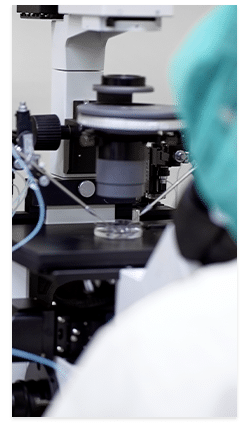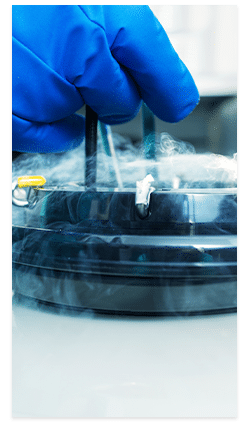Offering sophisticated technology to support your success
South Jersey Fertility Center is proud to be one of only a select few practices to offer this sophisticated tool. The Endometrial Receptivity Assay (ERA) uses innovative technology that examines a sample of endometrial cells (the cells that make up the lining of the uterus) to define the optimum time for embryo implantation during IVF. The ERA test can help improve the chances for successful embryo implantation, especially in patients who have experienced failed IVF implantation.

Understanding Optimal Timing for Implantation
The ERA test is performed during a specific time in the menstrual cycle to evaluate a pattern of gene expression that can help determine if the endometrium is ready for implantation. We call this a “receptive endometrium,” meaning that an embryo is likely to implant and grow into a healthy pregnancy. Most women experience a window of implantation 5-6 days after ovulation; however, research suggests that some women may have a personal window of implantation. Although conventional timing is used for women with a personal window, they are less likely to experience a successful implantation.
About the ERA Process
The ERA test works by having a fertility specialist take a biopsy of the uterine lining after medication has been administered for 5 days (medications like progesterone are used in embryo transfers to make the uterine lining thicker and more receptive to an embryo), or more depending on the uterine lining measurements. The ERA is done on the day an embryo transfer would normally occur, except instead of transferring an embryo, the biopsy is taken.
These cells are analyzed and the test can then predict if the endometrium would be receptive or non-receptive. If receptive, then this is the best timing to apply to a future month for implantation. If non-receptive, the patient and doctor now know that the window of implantation is, in fact displaced, and we can adjust timing accordingly to find the correct window through future ERA testing.


Candidates for ERA Testing
This test is used in cases of recurrent implantation failure with IVF of healthy embryos, or even chromosomally screened embryos using PGT-A. In some cases of patients who have had implantation failure, the receptivity test has shown us that the embryo transfer would be most successful either earlier or later than would otherwise be standard. Changing the timing of the embryo transfer can make all the difference of having a successful pregnancy or not.
About Receptiva
While ERA testing determines accurate timing for embryo transfer, the ReceptivaDxTM (BCL6 Test) evaluates if there are inflammatory conditions on the uterine lining that would affect embryo implantation. If there are high levels of BCL6 found upon testing, there’s an increased chance of endometriosis which is known to affect overall fertility and success in embryo transfers. We participate in Receptiva testing, and can assist you with appropriate treatment options in the case of an endometriosis diagnosis.
Learn more about endometriosis 

Resources
Providing helpful tips, updates, and information to support you along your family building journey.

Embryo Genetic Testing
Learn about the latest IVF technology improving success rates.
Read more

Frozen Embryo Transfer (FET)
Learn more about FET cycles and how they play a role in embryo genetic testing.
Read more

Financial Assistance
Learn about discount programs and other ways we support the financial aspect of fertility care.
Read more

